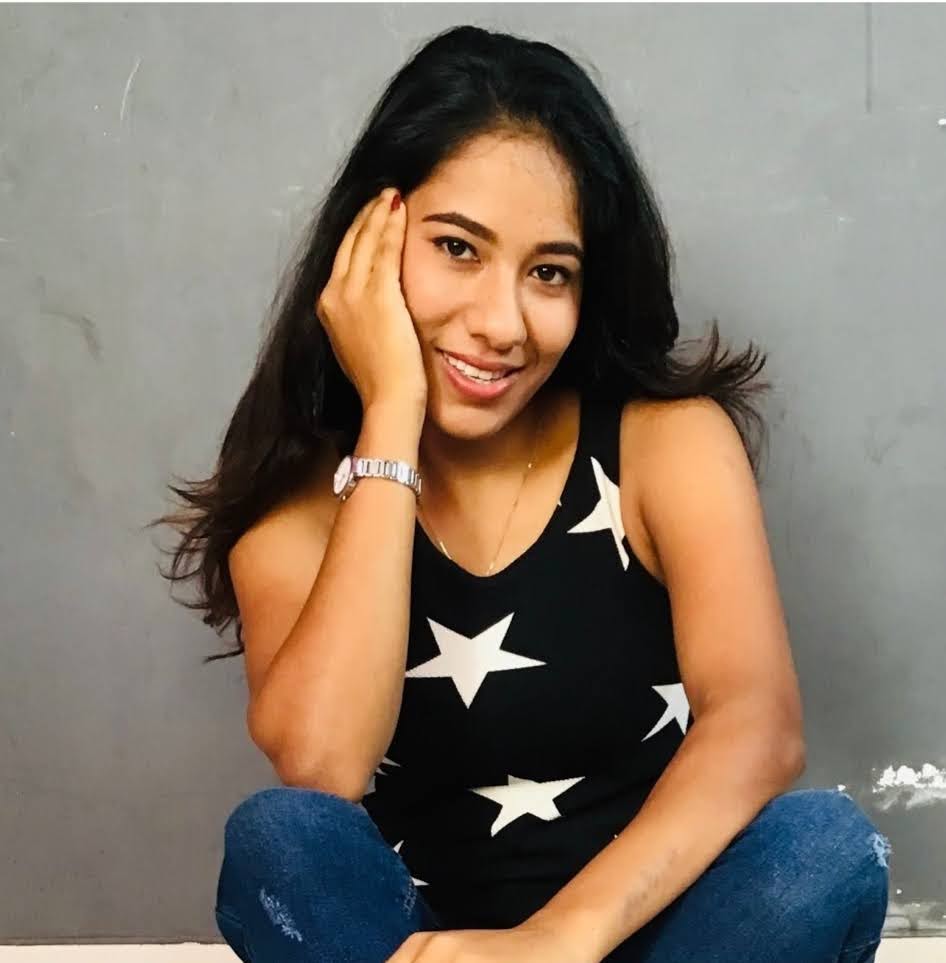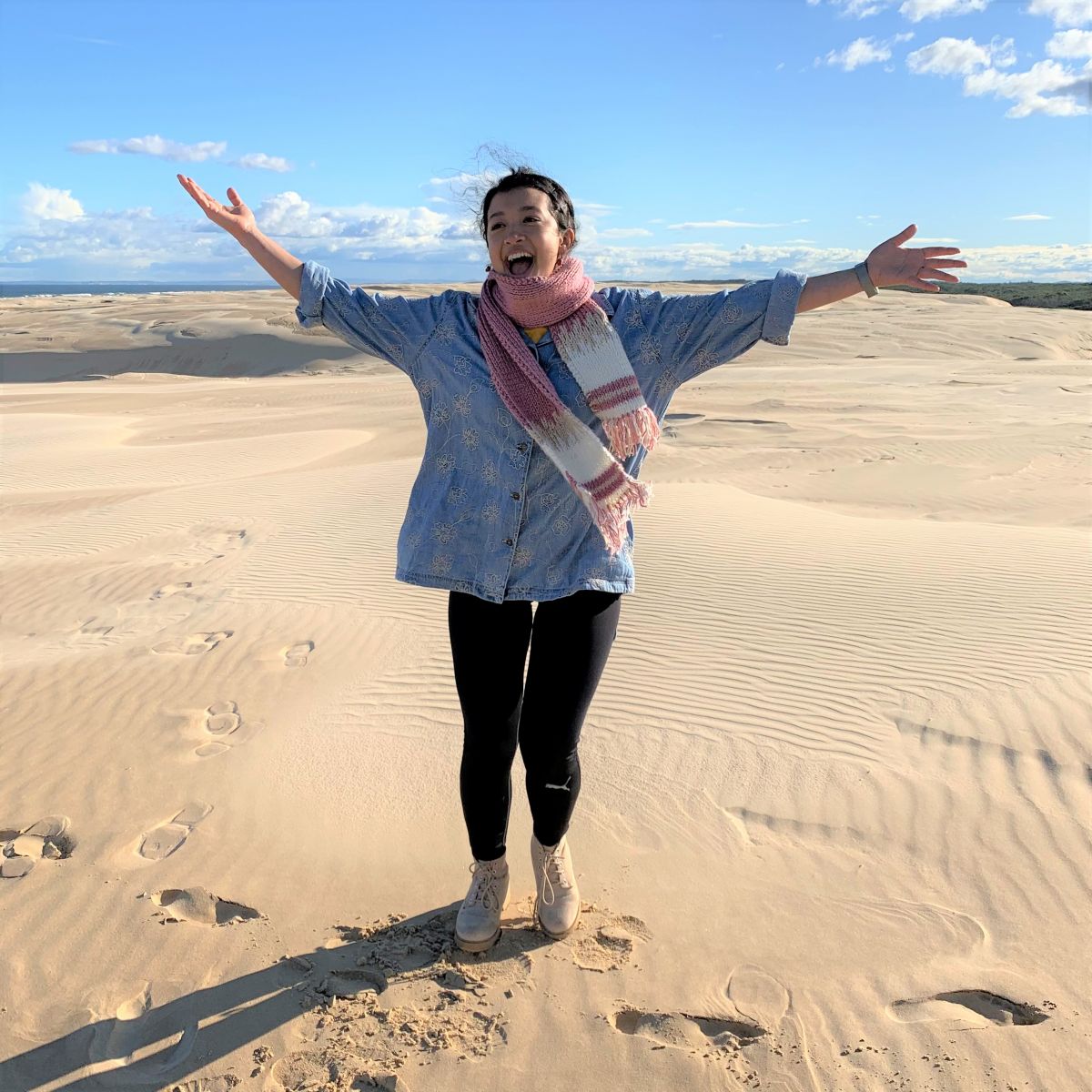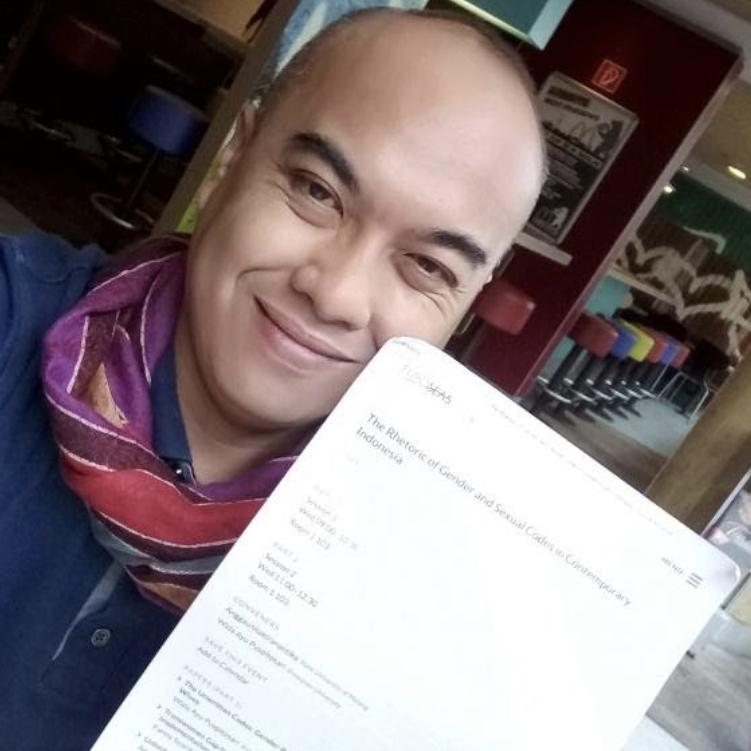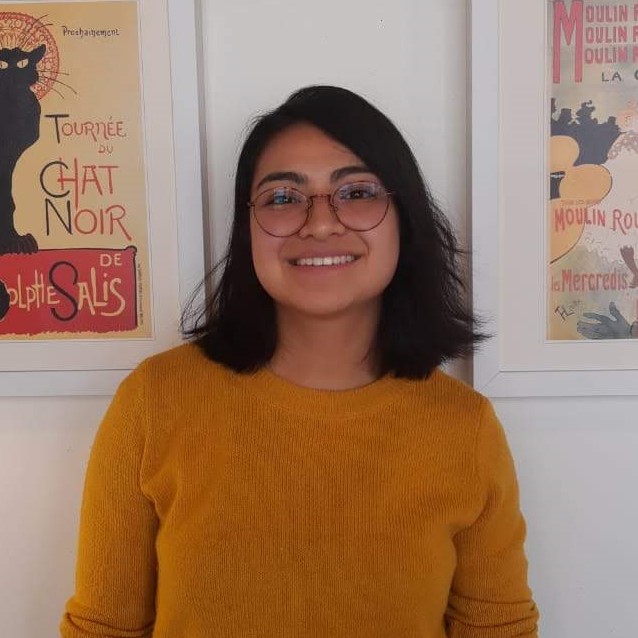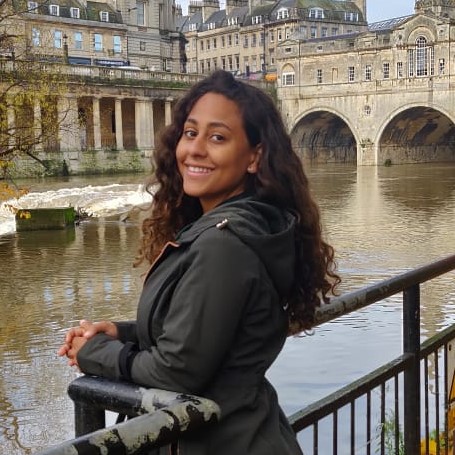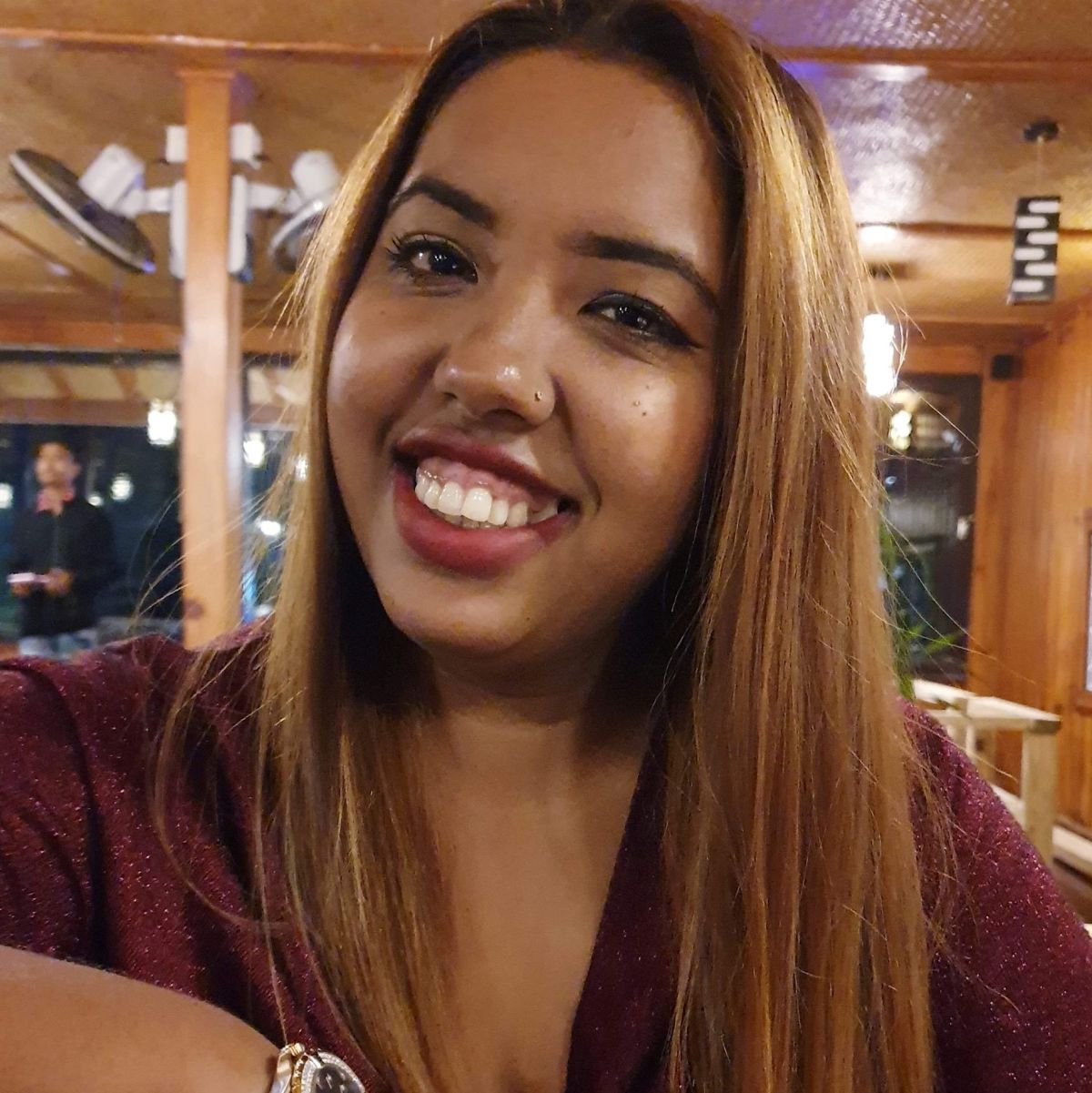Daughter of a Sex Worker
In the society where I grew up, I was told that if somebody touched me or tried to misbehave with me, it was my fault, that I allowed them to do it.
India, Southern Asia
Story by Taniya Yadav. Edited by Stéphanie Hamel
Published on May 17, 2021.
Reading time: 10 minutes
This story is also available in 



Content Warning: This story contains mentions of gender-based violence, sexual violence and suicidal behaviour that can be upsetting for some readers.
My name is Taniya and I am 24 years old. I was born in Kolkata, West Bengal. My mother came from a very poor family. She had ten siblings—three brothers and seven sisters. My grandfather was a pandit[1] and earned very little money to run the house. It was really hard for him to give all his children education, which later forced them to take up menial jobs such as domestic help.
My mother was sold into a pila house[2] in Kamathipura, Mumbai’s red-light area, when she was nine years old. She got married to one of her customers and got pregnant with me when she was around 15 years old. When I was one week old, my mother left me with my aunt and went back to Mumbai to go back to sex work.
When I was a child, life was very difficult. I still remember that at times, I used to sleep without having food for literally 4 or 5 days. I used to just drink water and sleep. I would never have 3 meals a day. Other children my age used to bully me and taunt me, saying: "You are not allowed to play with us, because your mother is a sex worker and you don't go to school like us."
I was a kid who was supposed to be in school. Instead, I was a kid sent to child labour in a nearby market. I used to bring the fish seller buckets of water, and they used to give me 2 rupees for every bucket. Not just that, they touched me in my private parts. All of this would keep happening, and I was always afraid to tell anyone.
Suddenly, one day a woman came to Kolkata claiming to be my mother and saying she was going to take me with her to Mumbai. I was about 8 years old and I had never met this woman; I didn't know her at all. I was scared to go with her. Finally, when my aunt reassured me that she really was my mother, I went with her to Mumbai.
The day I reached Mumbai, my mother introduced me to a man, my stepfather, saying at the time that he was my real father. As a child, I believed her, because I had never met nor seen a photo of my real father. I also discovered I had two more sisters who were both away studying in boarding schools. By the time I turned 9, my mother and that man sent me to live in a home run by an NGO called Asha Sthan.
I remember that every evening, she would get ready like she was going to attend a party.
A few years later—I believe I was about 13,5 years old—my mother decided to bring my sisters and I back from the shelter homes. She found me and my youngest sister, Mahek, but we never found our middle sister.
It was hard for me to be back home after such a long time. Everything was different. My stepfather used to beat my mother up every single day. I could not understand why this was happening, and I still didn't understand that my mother was a sex worker.
I remember that every evening, she would get ready like she was going to attend a party: bright lipstick, shiny purple saree, jewellery and smooth hair. When she would come back home, she was usually drunk. I never had the guts to ask her what kind of work she did, because we never shared a good mother-daughter relationship.
One day, my mother left home and never came back. I asked my stepfather to take me to the place where she worked, next to one of Mumbai’s local train stations. He took me to the red-light area and that's the day I found out my mother was a bar dancer[3] and a sex worker. I was absolutely devastated—I had seen movies that gave me an idea about what sex workers were like, and they were always depicted in a bad light. That night, when I found my mother, I requested that she come back home, but she refused. I went back home hoping that she would come back. She never did.
I felt that I was living my mom’s life; I was fed up with everything.
Then, it was just my stepfather, my sister and me at home. He started beating me up almost every day and that abuse turned into rape after some time. He would threaten me, saying that if I refused to sleep with him, he would do the same to my sister. Back then, I didn't have any other choice. I still remember the first time I slept next to him.
I felt that I was living my mom’s life; I was fed up with everything. I wanted to give up on life, end it, but at the same time, I never ever wanted something bad to happen to my sister. That’s why I went to the police station three times to report the abuse and ask for help. The cops would send me home saying that this was normal, a family matter. They told me once: "You are 16 right now, and we cannot take your complaint until you are 18." Then, they would call my step-father who would beat me afterwards for trying to report him. After being turned away by the police multiple times, I attempted to commit suicide.
But I survived.
I was helpless but not weak. I wanted to fight for my sister. At that time, I didn't know a single soul in Mumbai. I didn't know where to go or who to ask for help and I had no money. Then, one day, I remembered a friend from Asha Sthan. I talked to her about what I was going through, and she told me about an organisation she worked with, Kranti, which was working to empower children of sex workers. She gave me the phone number of Kranti’s founder, Robin. Robin founded Kranti to work with children of sex workers, aged 12-22, and other exploited women from Mumbai, to help them overcome their upbringing, redeem their silent suffering and become agents of social change.
That night, with Kranti in mind, I told my sister Mahek that I would be leaving the house the next day, but I promised her that I would come back for her one day. I needed some time to set up a safe space for our future. She was afraid that I was leaving forever and started crying. What else could she have done? She was only 8 years old.
I believe that the day I came to Kranti and met Robin, I was born again.
On June 9, 2013, I left home and never came back. That was the hardest decision I have ever taken. It was so hard to leave my sister behind with my rapist and abuser.
I believe that the day I came to Kranti and met Robin, I was born again. She took me to a therapist. At that time, I didn't know what a therapist was. For the first time in 16 years, I could sit in front of somebody and cry aloud. More importantly, I had somebody sitting in front of me saying that it was ok, and it was not my fault.
I promised myself that I would get Mahek out within 1 year. I got her out and to Kranti within 8 months.
Kranti has since been my family, my forever home and my happy place. Kranti has given me the love that I had never imagined and the care that I had always craved. It has given me the best education and most importantly therapy. Even today I still need help because the trauma I had in my past still feels fresh. I can never deny it. Therapy helps me realise that all I can do is accept my past and move forward in life.
In the society where I grew up, I was told that if somebody touched me or tried to misbehave with me, it was my fault, that I allowed them to do it. Even now my friends and many people around me keep asking: "why didn't you tell somebody?" I never told anybody because I was afraid to be judged and told that it was all my fault.
I want to keep sharing my story—no matter how many people point at me and say it was my fault—because it has the power to change somebody's life. Somebody is fighting a silent fight within their own journey. I use this sentence as a mantra.
Today I'm a licenced Zumba instructor, a group facilitator, an inspirational speaker and soon-to-be flight attendant. I recently started my workshop called "A Little Happiness," where I work with young children living in shelter homes to help them heal from their trauma through creative ways, like Zumba. I still have miles to go, but to me, leading is important.
Footnotes
[1] A Hindu scholar learned in Sanskrit and Hindu philosophy and religion, typically also a practising priest.
[2] During British rule, the red light area was called ‘playhouse’. Over the years, and as people picked phonetics over the actual words, ‘pila house’ emerged and became the most commonly used term.
[3] Dance bar is a term used in India to refer to bars in which adult entertainment in the form of dances by relatively uncovered women are performed for male patrons in exchange for cash.
How does this story make you feel?
Follow-up
Do you have any questions after reading this story? Do you want to follow-up on what you've just read? Get in touch with our team to learn more! Send an email to [email protected].
Talk about this Story
Please enable cookies to view the comments powered by Disqus.
Subscribe to our Monthly Newsletter
Stay up to date with new stories on Correspondents of the World by subscribing to our monthly newsletter:
Tags
Topic: Gender
> Australia
Memoir of a Beauty Queen
A story by Jemina Shrestha
4 min English Audio available
Was I really going to fight to get validated for being the most worthy? The answer came in a big "NO." Read more...
> Indonesia
Questioning the State of Religious Rights for Gender Minorities in Indonesia
A story by Fanny Syariful Alam
4 min
I question most Indonesians’ claims about the irreligiosity of the Indonesian LGBT community, and the view that they do not exercise the correct practices as administered in their holy books. Read more...
> Mexico
Being a Woman in South Korea and Mexico
A story by Olga Mata
4 min
I was shocked as I realized that authorities in Mexico would have never worried about my friends the way the Korean government now did. Read more...
Explore other Topics
Get involved
At Correspondents of the World, we want to contribute to a better understanding of one another in a world that seems to get smaller by the day - but somehow neglects to bring people closer together as well. We think that one of the most frequent reasons for misunderstanding and unnecessarily heated debates is that we don't really understand how each of us is affected differently by global issues.
Our aim is to change that with every personal story we share.
Community Worldwide
Correspondents of the World is not just this website, but also a great community of people from all over the world. While face-to-face meetings are difficult at the moment, our Facebook Community Group is THE place to be to meet other people invested in Correspondents of the World. We are currently running a series of online-tea talks to get to know each other better.











